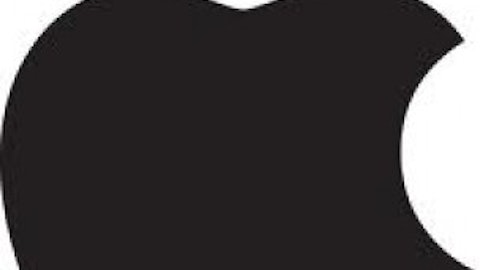Apple Inc. (NASDAQ:AAPL) has drawn the ire of many members of the smart money, but there’s one fund that was buying last quarter when everybody else was selling. Let’s take a look.
Chart: Apple Inc. (NASDAQ:AAPL)’s trading price over the past 12 months
Hedge funds get a bad rap. Most investors choose to think of the industry’s 8,000-plus managers as one-size-fits all, but that’s clearly not the case, even in the equity markets. At Insider Monkey, we’ve found that by focusing on the best stock picks of the best money managers, retail investors have historically found it possible to beat the market. Our small-cap strategy beat the market by 18% a year for more than a decade in our back tests, and since we started sharing this with the public, it has returned another 18% in just 5 months (learn how to use this yourself).
It’s equally as important to take a closer look at each individual fund within this “upper crust,” so to speak. Our fund-by-fund analysis system is a great way to get started, and it’s also important to look at each manager’s favorite investments. We’ve already covered the latest picks from the many of the most well known names, but one that we haven’t taken a look at yet is Joshua Friedman And Mitchell Julis’s Canyon Capital Advisors.
Canyon Capital is an alternative asset manager that searches for risk-adjusted returns that outpace debt and equity market indices, with significantly lower volatility. Originally founded in 1990 in Los Angeles, the firm has offices in New York and London as well. Canyon Capital has close to $20 billion in assets under management and its flagship fund returned 10.4% a year between 2002 and 2011, versus the S&P 500’s 3.3% return.
Worth a little over $708 million at the end of the fourth quarter, this fund’s equity portfolio isn’t gargantuan by any means, but it’s big enough that we should pay attention to it. Let’s take a look at Canyon Capital’s top three stock picks, to determine how it was preparing for Mr. Market’s ebbs and flows in 2013.
Cumulus Media Inc (NASDAQ:CMLS) sits at the No. 1 spot in Canyon Capital’s equity portfolio, as it has for three consecutive quarters. This bullish bet represents an interesting play for the asset manager, as just 13 of the funds we track were long at the end of Q4. That’s a decrease of 7% from the previous quarter. Still, shares of Cumulus have already popped 20.6% since the start of the year, and Wall Street’s average price target represents an upside of another 30%.
Clearly, what’s driving this stock isn’t just value investors–Cumulus does trade at 0.53 times sales–as analysts expect EPS to grow by more than 80% next year. That’s quite the forecast, and it’s worth noting that Cumulus has seen this story before over the past half-decade, averaging EPS growth of 68.5% annually. It’s easy to see why Canyon Capital is optimistic on this small-cap media company.
Apple Inc. (NASDAQ:AAPL), meanwhile, is a very intriguing play here at the No. 2 spot. Why? Because Canyon Capital established a new position in the tech giant last quarter. We’ll repeat: Apple was a new position last quarter. If you’ll recall, some of the hedge fund industry’s biggest names–billionaire Dan Loeb for one–were selling off their stakes in Apple entirely last quarter. The stock was even tops on our list of “5 Stocks Hedge Funds Were Dumping Last Quarter,” with a whopping 24 of the 450 funds we track cutting their positions in favor of other investments.
What would possess Canyon Capital to go against the grain of one of the most widely covered selloffs in recent memory? Well, for starter’s, Apple Inc. (NASDAQ:AAPL) is a very solid value play with underrated growth prospects. Yes, Apple’s EPS growth, which averaged 62.2% per year over the past half-decade, is expected to fall by more than two-thirds over the next few years.
But, and this is a big but, it’s crucial to point out that this new predicted trajectory–19% annual EPS growth through 2017–trumps the likes of Google Inc (NASDAQ:GOOG)‘s 14.3% and Microsoft Corporation (NASDAQ:MSFT)‘s 8.4% handily. Equally as important, Apple Inc. (NASDAQ:AAPL) also trades at a mere PEG of 0.53, while Google (1.7) and Microsoft (1.8) are far more expensive.
What does this mean?






